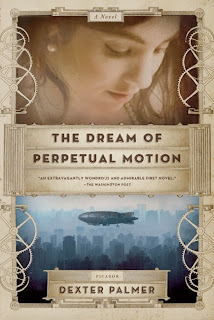In The Other Life Meister tackles questions everyone has, the big What If, that follows our major life choices. Although the basic premise of the book is slightly science fiction- this ability that Quinn has to move between worlds- it really just a way for Meister to tell a story about the choices we make and the lure of the path not taken. I found myself devouring The Other Life, the book unquestionably hooks the reader into the story, and I was unable to put down the novel once I picked it up until I finished it. The book is compelling and enjoyable, the plot itself is fairly simple but the way that Meister tells the story makes it one that readers will easily connect with.
The other major theme Meister addresses in her novel is the mourning of a parent- Quinn's other life would not have tempted her so much if it didn't include the mother she never really said goodbye to. It poses some interesting questions, because as much as Quinn wants her mother, in order to achieve that she will have to leave her own son motherless. Quinn also has to decide if she wants to carry her child to term despite its disability. These sorts of dilemmas that Quinn faces are extremely interesting and morally ambiguous, and I think that they would help make The Other Life a fantastic book club choice as there is certainly a lot that can be discussed about the novel.
Overall, The Other Life is a mesmerizing and heart-breaking story. The characters are believable and well-written, and the choices Quinn faces are both thought-provoking and realistic. The concept of the book is perhaps not incredibly original, and admittedly I found the plot very predictable, but ultimately what makes the novel so worthwhile is the fantastic storytelling by Meister. The Other Life begins with a question- what if you could take the other path- and the way that Meister answers that question is powerfully and beautifully written.
Release Date: February 17th, 2011
Pages: 320
Overall: 4/5
Buy the Book
Source:

This review was a part of TLC Book Tours. Click here to read what other tour hosts thought. For the purpose of this review I was provided with a copy of the book which did not require a positive review. The opinions expressed in this post are completely my own.








































